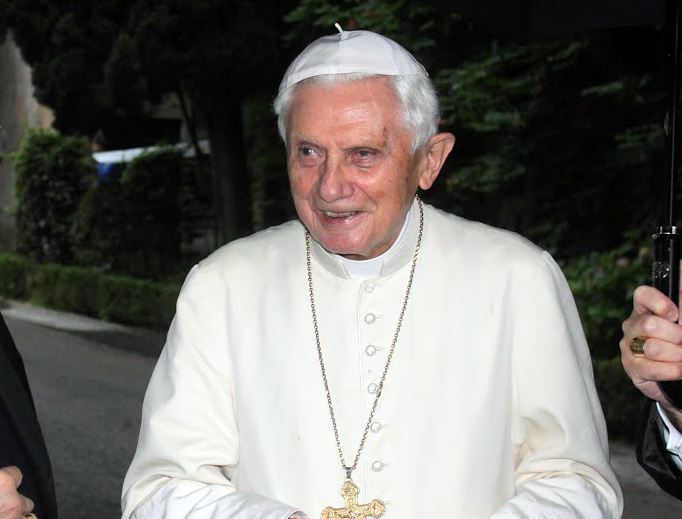Benedict XVI Warns of ‘Dangerous Situation’ With Radical Atheism and Radical Islam
In a new message addressed to a conference sponsored by Poland’s president, Benedict warns this contrast ‘creates a dangerous situation for our age.’

Pope Emeritus Benedict discussed the joint perils posed by radical Islam and radical atheistic secularism in a message he sent to a conference held April 19 in Warsaw, Poland, on the topic of his thinking about the concept of the state, held to coincide with his 90th birthday. Benedict’s comments were delivered to the conference by Archbishop Salvatore Pennacchio, papal nuncio to Poland.
Here is the text of the pope emeritus’ comments, which were made in Polish and translated for the Register:
I was greatly moved, grateful and happy to learn that an academic conference on the topic of “The Concept of the State From the Perspective of the Teachings of Cardinal Joseph Ratzinger/Pope Benedict XVI” (Pojęcie Państwa w perspektywie nauczania Kardynała Józefa Ratzingera/Benedykta XVI), attended by the representatives of Poland’s government and Church and organized under the patronage of the president of the Republic of Poland, was held to coincide with my 90th birthday.
The topic of the conference brings government and Church officials into common dialogue on a topic that is of key significance to the future of our [European] continent. The contrast between the concepts of the radically atheistic state and the creation of the radically theocratic state by Muslim movements creates a dangerous situation for our age, one whose effects we experience each day. These radical ideologies require us to urgently develop a convincing concept of the state that will stand up to the confrontation between these challenges and help to overcome it.
During the agony of the previous half-century, Poland gave the world two great figures — Cardinal Stefan Wyszyński and Pope St. John Paul II — who not only reflected upon these issues, but also carried within themselves suffering and vivid experiences; thus they continue to give us guidelines for the future.
I give my blessing to all of you and would like to express my sincere gratitude for the work that you do in these circumstances.
Benedict XVI
Vatican, April 15, 2017
Translated for the Register by Filip Mazurczak













